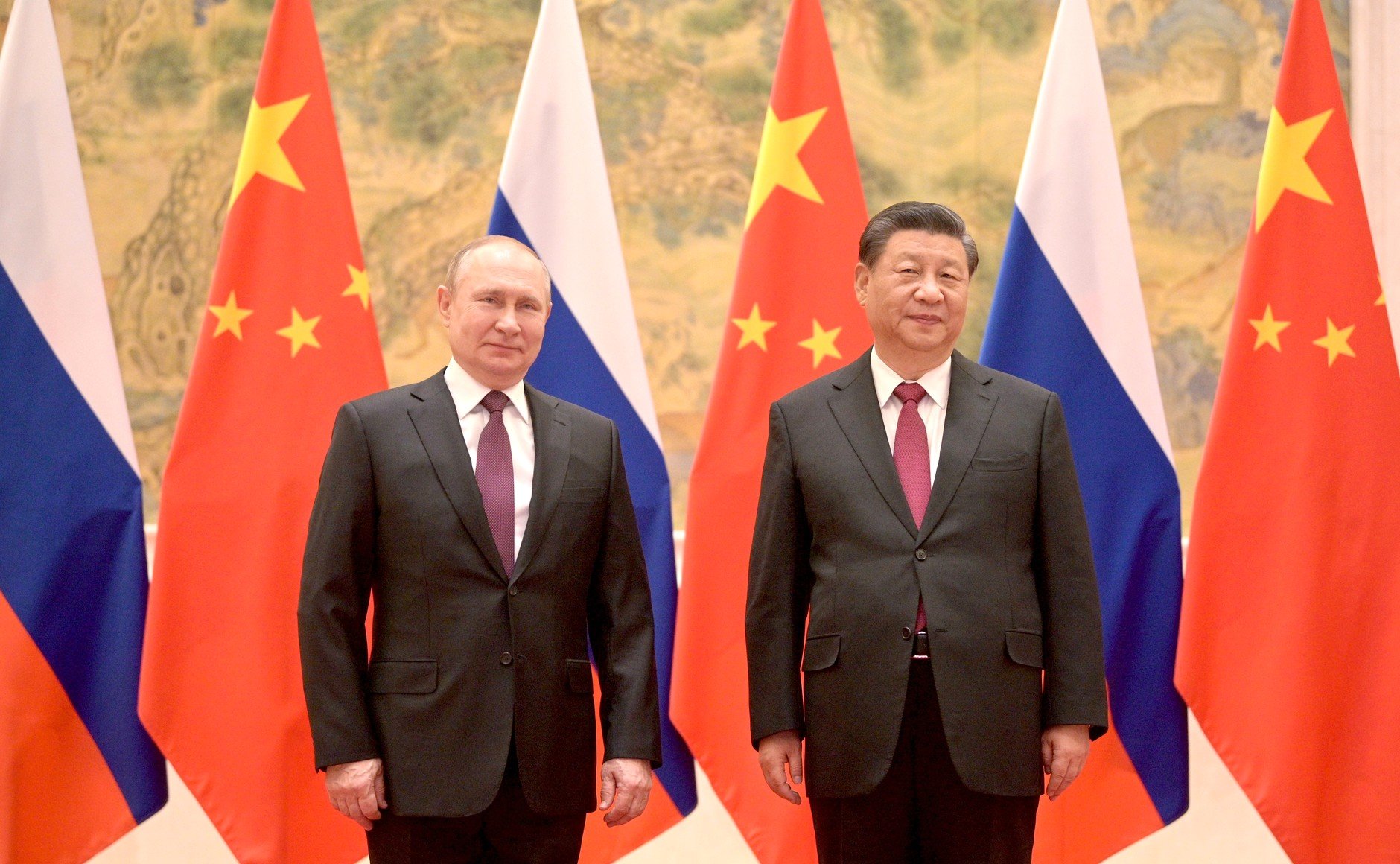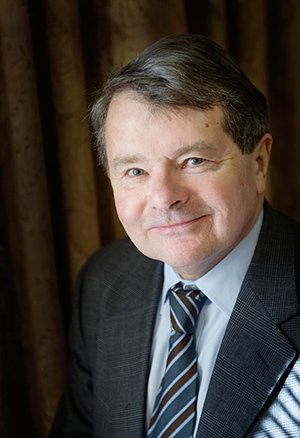
Vladimir Putin has developed his own methods of diplomacy during his 22 years in power. Like all diplomats he has cultivated allies and personal friends, but his invasion of Ukraine shows how far those same allies and friends have been manipulated and embarrassed on an international stage.
Above all others, China has been slighted the most by Vladimir Putin’s war. A few days before Putin’s invasion on January 4, 2022, Ukraine was receiving a congratulatory message from President Xi Jinping. The two countries were celebrating the 30th anniversary of diplomatic relations to push for more results in bilateral relations and cooperation. Ukraine was cementing its position as China’s main trade partner and a key member of its Belt Road Initiative (BRI), China’s major foreign policy program close to a decade old and involving 139 countries in the world. This massive global project has been part of what President Xi Jinping has called “China’s dream.”
At the time, China made no mention of concern about Ukraine’s aspirations to join NATO or the EU, and China has never recognized Russia’s annexation of Crimea in 2014.
China has also made important inroads with Ukraine’s neighbors. On February 6th, 2022, Poland, a neighbor of Ukraine, was being received at the Beijing Winter Olympics as China’s ’gateway to Europe’ and an example of ‘true friendship’. Poland, a member of NATO, was another key member of the BRI. Poland’s economy and trust of China is now being undermined by an enormous influx of refugees – Warsaw’s population alone has grown by 20%. Similarly, China is also working with Serbia, a traditional Russian ally, on the BRI and has made important investments in Serbia. In 2016, Xi Jinping expressed support for Serbia’s accession to the European Union.
Perhaps more serious than blowing up of China’s relations and trade with Ukraine (and possibly its neighbors) is the impact of sanctions and security concerns of China’s rail freight routes through Russia, Kazakhstan, and Belarus. China was so invested heavily in these rail links it had subsidized rates for users. In 2021, there were close to 14,000 deliveries worth $75 billion in goods. Now freight companies are shunning these China-funded railways and opting for sea routes.
As for other allies of Russia, India has abstained in votes condemning the invasion and respecting the sovereignty of Ukraine. The reasons were long-time ties with Russia going back to the Soviet Union that persist today through recent dependence of military arms. But that did not seem merit an alert about the invasion to the 18,000 Indian students in Ukraine whose lives were endangered by the Russian invasion. The students struggled to exit, and in doing so, lost all they had invested in a Ukrainian medical qualification.
Pakistan has been betrayed by Russia as well. In May 2021, the Chief of Pakistan’s Defense forces visited Ukraine. Pakistan has a defense agreement with the country and has purchased hundreds of Ukrainian-made tanks. Pakistan itself has no problems with NATO – it is even a partner with NATO itself – but is also allied closely with Russia. It is now forced to explain why Russia’s invasion is justified.
Turkey was an ally of Russia in Syria and has purchased Russia’s marquee military equipment. However, Turkey also sold military equipment to Ukraine. Torn between the two sides, President Recep Tayyip Erdoğan has called Putin numerous times in opposition to the forceful seizure of Ukraine. Now, Turkey is hosting peace negotiations between Russia and Ukraine.
Israel, too, has good relations with both Russia and Ukraine. One-fifth of its population speaks Russian. Yet Putin’s stance has been to label the government of Ukraine ‘Nazis’, comparing the persecution of ethnic Russians in Ukraine to a genocide. Perplexingly, Putin has vowed to oust a Jewish president who lost family members in the Holocaust.
Another Putin ally is Victor Orban of Hungary. Orban has refused to send military equipment to Ukraine, but he did join the EU in approving sanctions. Due to Putin’s actions, he has now been faced with receiving thousands of Ukrainian refugees across their border – probably the worst policy challenge he could imagine considering his anti-immigrant stance.
In South Africa, the President and ANC leader Cyril Ramaphosa has largely blamed NATO for the war. This has exposed domestic divisions in his country, and many local provinces and cities have criticized Ramaphosa and aligned themselves with Ukraine.
Beyond these complicated strategic relations, Putin considers the leaders of these countries his ‘friends’ and hoped that they would act as such. After all, Xi Jinping, Narendra Modi, Recep Tayyip Erdoğan, and others have all been in power less time that Putin has. Xi Jinping, for example, called Putin his ‘best friend’ in 2019.
Others, no longer in power, like former President Trump thought they were friends too. “I liked him. He liked me,” Trump once said of Putin. Yet, throughout Trump’s four years in power, Putin never assisted Trump and mainly opposed his foreign policy endeavors such as those with North Korea, Iran, Venezuela and Cuba. Here in the United States, conservative media channels have defended Putin’s actions and right-wing supporters have chanted Putin’s names at political rallies. International media like this has proven to be extremely useful to Putin and some American personalities like Tucker Carlson appear frequently on Russian state-controlled television. Again, Putin has ruthlessly exploited those who thought they were his friends.
So, what was Putin’s motive in invading Ukraine? It was clearly not to reinforce China’s efforts to create a new global ‘community of shared destiny’. It was to realize personal nostalgia of a bygone era: to resurrect the Soviet Union. It appears that Putin has not to have alerted any of his allies about his plans for a full-scale invasion involving threats to citizens in all centers of population in Ukraine. Hence the flat-footed reaction of his allies and friends.
Another motive was to fragment NATO, thinking its reaction would be disjointed and weak. Putin did say in public at a 2018 summit in Helsinki that he wanted Trump to win the presidency. John Bolton, Trump’s former National Security Adviser, thought that if Trump had been re-elected, he might have withdrawn the United States from NATO.
But today, Putin has recognized that the states he regards as allies and his ‘friends’ who run them can be manipulated to remain loyal to Russia. Perhaps of even-wider significance is Putin’s attack on the world order, including Russia’s role in world diplomacy centered on its role in the United Nations. He has suggested he might use nuclear weapons despite being a depository country of the Nuclear Non-Proliferation Treaty.
Russia under Vladimir Putin has jettisoned the obligations it assumed as a permanent member of the UN Security Council. They were awarded this role under the legally-binding UN Charter because the Soviet Union were victors of the Second World War – alongside the United States, the United Kingdom, France, and China. Article 4 of the UN Charter states, ‘All Members shall refrain in their international relations from the threat or use of force against the territorial integrity or political independence of any state, or in any other manner inconsistent with the Purposes of the United Nations.’ In 1945, Stalin insisted that Ukraine and Belarus were admitted as sovereign members of the UN even though they were territorial parts of the Soviet Union.
It is too soon to judge the impact of Putin’s war on his allies and world. It is hard to see any of those he calls friends being interested in a resurrection of the Soviet Union bloc. The bigger powers of the 21st century have vastly different visions of world diplomacy. Putin has shown – particularly to China – that he is obsessed at restoring Russian control over Ukraine even if it means threatening the interests and good will of his allies and friends.

Paul Webster Hare
Paul Webster Hare was a British diplomat for 30 years and the British ambassador to Cuba from 2001-04. He is currently a Senior Lecturer in international relations at the Frederick S Pardee School of Global Studies at Boston University.






